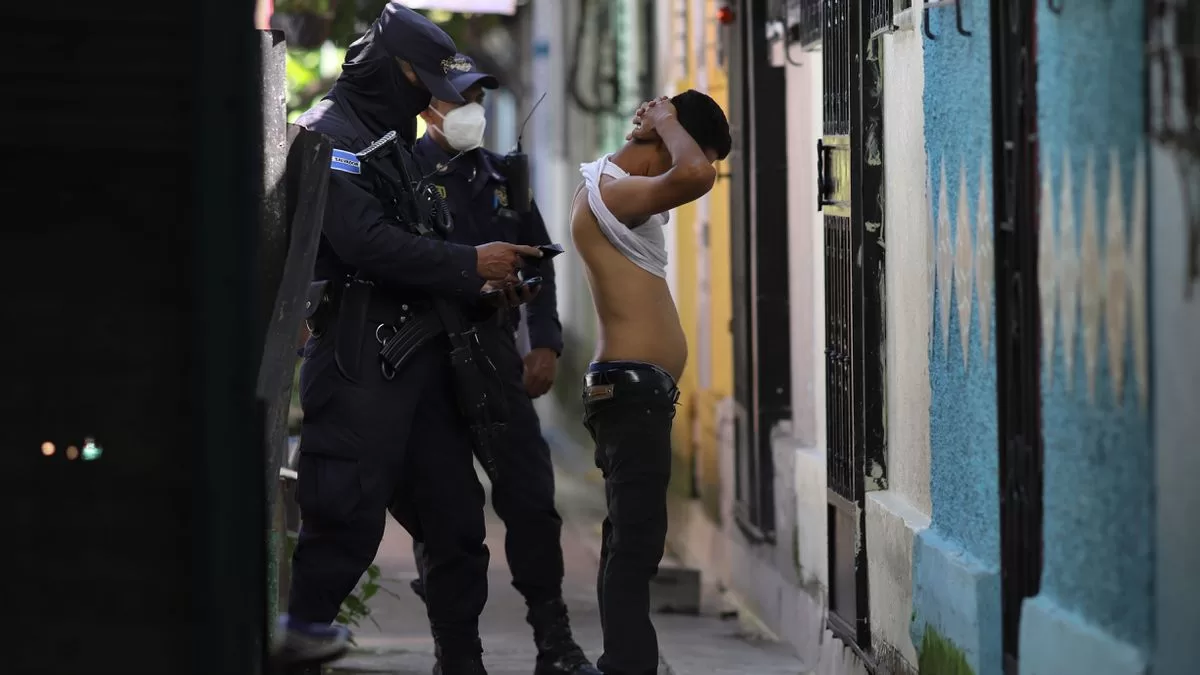The policemen captured Henry Joya on April 19, 2022. It was approximately 10 p.m. at night and he was asleep. They pushed him out of his house located in the Luz neighborhood, in the municipality of San Salvador, and five months later his family, after not knowing anything about him, found him dead. The exceptional regime that President Nayib Bukele imposes in El Salvador swallowed this man alive and then spit out his corpse in a common grave in the La Bermeja cemetery. But before – technically and according to human rights organizations – he was under “forced disappearance”.
Joya was arrested for alleged links to the gangs and was later transferred to the Mariona Prison, where the prison authorities provided his family with information on his condition. Especially since he suffered from a mental disability that caused him to forget many things. However, at the beginning of July, after two months of detention, the news about Joya stopped. He did not appear on Mariona’s prisoner lists. Jesús Joya began looking for his brother through other prisons. I couldn’t find him, I couldn’t find him… Joya’s family went to other government institutions to ask about his whereabouts without success, until Jesús had an undesirable “feeling”: look for him at the Institute of Legal Medicine (IML).
The forensics showed the family a series of photographs of corpses and among them was the face of Henry, a man whom his neighbors in the Luz neighborhood describe as “helpful” and who “did not get into trouble.” The discovery was made on September 19, but Jesús was astonished when they told him that his brother had been buried in the common grave 73 days before, while they searched for him from prison to prison, from institution to institution, without anyone being able to give them a little piece of information.
The man was exhumed in October and, according to the report issued by the IML, he died of pulmonary edema. “However, a witness who shared a cell with him in the Mariona penitentiary center informed the family that he had been subjected to severe beatings by the guards and that he died as a result of them,” documents a report that the Foundation for the Due Process, along with five other Salvadoran organizations, presented the Committee against Enforced Disappearances and the United Nations Working Group on Enforced Disappearances.
Three patterns of disappearances
The case of Henry Joya falls within one of the three patterns of forced disappearance that the report prepared by the Foundation for Due Process identifies under the exception regime in El Salvador. This is a controversial measure that the popular President Bukele has been extending since March 2022 and, with which, he has “neutralized” the brutal violence of gangs in the smallest country in Central America. The extraordinary measure that suspends constitutional guarantees has sent more than 71,000 people to prison.
Join EL PAÍS to follow all the news and read without limits.
subscribe
Although the Government links all the detainees to the gangs, human rights organizations have denounced 5,490 “direct victims”, outside the criminal structures. The figures shared by the social organizations indicate that there are some 13,581 “violating acts” until last July. The most reported is arbitrary detention with 95%. However, now the phenomenon of “short-term forced disappearances” is added.
The three patterns of disappearance have elements in common: people are captured by police or military who apply the state of emergency. They are captured in public places, in the presence of witnesses, and later their relatives go to different police centers to request information, where they are denied that the arrest occurred, as well as the whereabouts of the detained person.
The first pattern, called A, highlights that, after several weeks or months, and after a lot of insistence with the police, “the relatives receive some information that allows them to find the person detained in a penitentiary center.” While in pattern B, after “several weeks or months, and despite the insistence of relatives and the filing of habeas corpus, the relatives have no news of the detained person.” “This seems to be the most frequent pattern according to the complaints received in the organizations that subscribe to this document,” the report states.
And finally there is pattern C, in some ways the most fatal, in which the case of Henry Joya is found: “They are, equally, people captured by the police or the military, in application of the state of emergency, in public places, in the presence of witnesses, and later their relatives go to different police centers to request information and it is officially recognized that the person has been captured and sent to a prison. Subsequently, the family does not have any other official information or communication with the detained person, and after several months of searching for their loved one again, they find out through the Institute of Legal Medicine or by private persons, such as a funeral company. , that his relative died in the penal center. Many of these people are buried in mass graves, before their relatives find out about their death.
At the end of last July, the Parliament controlled by the ruling party approved transitory provisions and reforms to the Law against Organized Crime to increase the penalties for gang leaders and allow collective trials to be held. In these mass hearings of up to 900 detainees, entire criminal structures will be prosecuted, instead of subjecting the accused to individual proceedings. In addition, the law regulating drug-related activities and juvenile criminal law have been reformed in “inquisitive” ways, says the report presented to the United Nations.
“As a whole, these reforms make it easier for any person anonymously accused of committing a crime to remain in unofficial provisional detention without a time limit, to be convicted with flawed evidence, with reference witnesses, among others, facilitating the abusive use of the regime of exception”, criticizes the Foundation for Due Process. Criticism that does not make a dent in President Bukele, who continues to expand his exceptional regime, while he boasts of having built “the largest prison in Latin America.”
“Armed with these legal tools, the police and military have carried out massive and indiscriminate arrests of people (…) This situation is aggravated by the ‘de facto’ practice and/or policy of the police and prison authorities of denying all information on the state of the detained persons to their relatives or defenders”, regrets the report of the civil organizations. “There is also no immediate record of detainees, nor judicial control of the arrests. Most of them are young people in a situation of poverty and vulnerability, accused of the crime of illegal groups, whose legal wording is so extensive that it allows and facilitates the apprehensions of people without any foundation.
Subscribe here to newsletter from EL PAÍS America and receive all the key information on current affairs in the region




